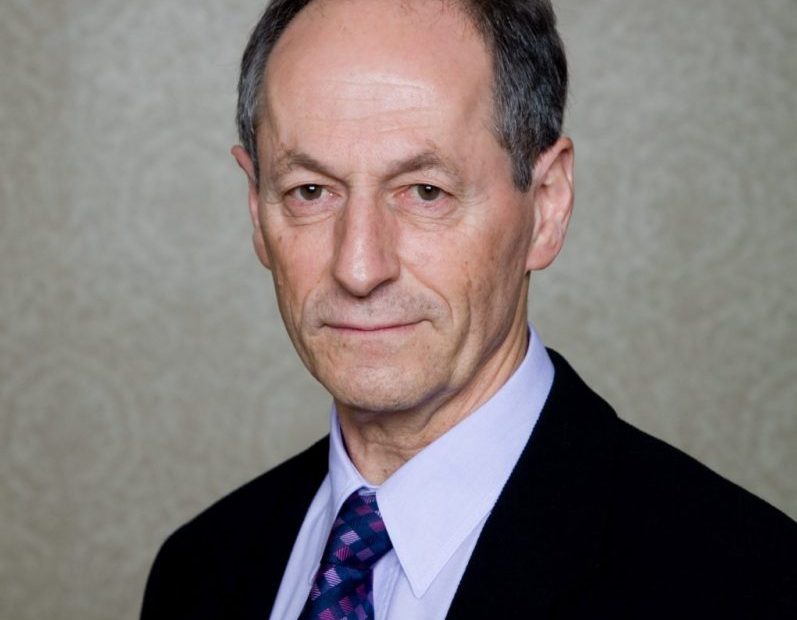8 OCTOBER 2022
World renowned epidemiologist Professor Sir Michael Marmot did not mince his words as he presented evidence to show how government policies have led to greater health inequalities in the UK. “Since 2010, the rate of improvement in life expectancy has almost ground to a halt”. Marmot was speaking to a packed meeting of the Hebden Bridge Literary and Scientific Society. The enthusiastic audience identified completely with Marmot’s obvious anger and frustration as he stressed how it was government policies that worsened health inequalities, and how an obsession with low taxation has meant that Britain now compares poorly with most other similar countries.
The audience were presented with some shocking statistics. The poorest have been hit hardest by the austerity measures of the present government. Regional differences are minimal amongst higher income groups, but pronounced amongst the poorest. In London a woman in the most deprived ten per cent of the population can expect to live four years longer than a similar woman in the North East. This inequality corresponds to the dramatic reductions in government support for local authorities; these reductions have been greatest in the poorest councils.
Child poverty levels in the UK ranked 31st amongst the richest 41 economies. Most European countries have higher rates of taxation, and spend much more on child care, education, health and public transport. Finland, for example, has a tax take of 52% of GDP; in France it is 51% and in UK it is only 36%; yet the UK government sees lowering tax as a priority. Data show that the ten percent poorest households would need to spend 74% of their disposable income on food to follow the NHS Eatwell Guide.
The COVID pandemic has amplified inequality in the UK. In Greater Manchester the coronavirus death rate was 25% higher than the England average during the year to March, leading to “jaw-dropping” falls in life expectancy and widening social and health inequalities across the region over the past year.
There were many questions from the audience, several of whom said they were inspired by Professor Marmot’s lecture. Asked how individuals can be engaged in reducing health inequalities, he said it was very difficult for individuals on their own. “Social change happens when people get together in social movements. Take action where you live”. Sir Michael said that it was not access to health care that causes health inequalities, but the conditions that make people sick in the first place. Some local authorities have adopted principles set by the UCL Institute of Health Equity. In these “Marmot” areas local actions include increased support for families and a focus on early childhood, resulting in improved child health and educational attainment. Local people and organisations were urged to get together to make Calderdale a Marmot area.
Sir Michael Marmot has been Professor of Epidemiology at University College London since 1985, and is Director of the UCL Institute of Health Equity. He is the author of The Health Gap: the challenge of an unequal world (Bloomsbury: 2015), and Status Syndrome (Bloomsbury: 2004).
Professor Marmot is the Advisor to the WHO Director-General, on social determinants of health, in the new WHO Division of Healthier Populations; Distinguished Visiting Professor at Chinese University of Hong Kong (2019-), and co-Director of the of the CUHK Institute of Health Equity. He is the recipient of the WHO Global Hero Award; the Harvard Lown Professorship (2014-2017); the Prince Mahidol Award for Public Health (2015), and 19 honorary doctorates.
Marmot has led research groups on health inequalities for nearly 50 years. He chaired the WHO Commission on Social Determinants of Health, several WHO Regional Commissions, and reviews on tackling health inequality for governments in the UK. He served as President of the British Medical Association (BMA) in 2010-2011, and as President of the World Medical Association in 2015. He is President of the British Lung Foundation. He is a Fellow of the Academy of Medical Sciences and Honorary Fellow of the American College of Epidemiology and of the Faculty of Public Health; an Honorary Fellow of the British Academy; and of the Royal Colleges of Obstetrics and Gynaecology, Psychiatry, Paediatrics and Child Health, and General Practitioners. He is an elected member of the US National Academy of Medicine and of the Brazilian Academy of Medicine. He was a member of the Royal Commission on Environmental Pollution for six years and in 2000 he was knighted by Her Majesty The Queen, for services to epidemiology and the understanding of health inequalities.
